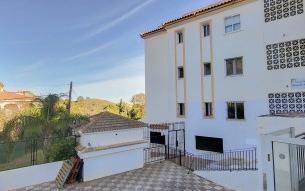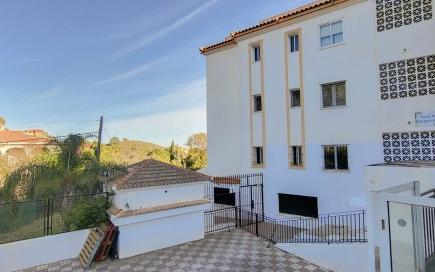
If you want to visit Spain for a holiday and spend less than 90 days in the country then you may be able to take advantage of the 90-day rule, which allows visa-free travel for tourism purposes to visitors from a number of countries. Some of the main countries that are currently able to benefit from this rule include the UK, USA, Australia and Canada.
But what happens if you are from one of these countries and you want to stay in Spain for longer than 90 days? What if you want to live in Spain, retire to Spain, work in Spain, or even set up your own business in Spain? Here are all of your visa options for each of these scenarios, helping you to work out what kind of visa you need if you want to spend more than 90 days in Spain:
The Best Visa Options for Retirees
If you want to retiree to Spain then the best visa option for you will be a visa that is relatively straightforward to secure, and which isn’t complicated by any work-visa requirements. The non-lucrative visa is a great example of this, and is widely considered the best option for retirees, although you will need to demonstrate that you have significant funds available to secure this. Individual applicants are currently required to show that they have 27,792 euros per year available, whilst a couple will need to show that they have 34,740 euros available. You will also need to secure comprehensive health insurance as part of your application.
A non-lucrative visa is initially issued for one year but can be renewed for a further two years at the end of the first year. You can also use the residence modification process to change your visa at the end of the first year if your circumstances change: if you wish to work whilst in Spain, for example. And if you only want to live in Spain temporarily (visiting the country for longer than three months but ultimately returning to your home country) then this visa would also be the best option for you. If you have the financial means to do so, you can enjoy spending time in the country without working, living off your savings and investments instead.
The Best Visa Options to Work in Spain
If you would like to move to Spain and work in the country then your visa options are slightly more restricted, and the process is also slightly more complicated. This is because in order to get a work permit in Spain as a non-EU national, the position you apply for has to be on Spain’s shortage occupation list. This list is incredibly restrictive, and most roles that foreign nationals would like to undertake are not included on this list.
Even if the role you would like to secure is included on this list, and an employer agrees to hire you, they would have to prove that there were no other suitable candidates within the EU to be able to fill the vacancy. This is a time-consuming process that many employers are, understandably, reluctant to undertake. It also means that very few people are likely to be successful.
If you want to work in Spain on a self-employed basis, then securing a visa might be a little easier. Spain have recently introduced an entrepreneur visa, which allows third party nationals to live in the country for one year in order to open a business. It can then be extended for a further two years, after the first year is completed. It’s important to note though that the business you open should be deemed to have a special economic interest for Spain. In order to secure this visa you will also need to:
- Demonstrate that you have the necessary qualifications to set up your proposed business
- Submit your business plans to the relevant Spanish authorities for approval
- Demonstrate that your business would benefit the Spanish economy
The Best Visa Option for Investors
If you’re an investor with a significant amount of money to spend, or you’re planning to invest in a property in Spain and have a sizeable budget for your purchase, then the Golden Visa scheme is likely to be the best option for you. This is one of the easiest Spanish visas to apply for, but to be eligible you must invest a pre-tax figure of at least 500,000 euros in property in Spain. This visa will give you access to the entire Schengen area, although it won’t allow you to work during your time in Spain. It will also allow you to travel with your spouse and any dependent children, whose access to the country will all be covered by the terms of the Golden Visa.
Making the most of family relationships is another option for accessing Spain with ease: If you happen to have a family member who is an EU citizen and lives in Spain or a non-EU relative that has residency in Spain, then you can apply for a family reunification visa. However, this is usually only issued to spouses or dependent children of the citizen in question, and the citizen must also demonstrate that they have the financial means to support the individual they are sponsoring.
Finally, if not of the options above are relevant to you, but you still want to spend longer than three months living in Spain and soaking up the country’s culture, as well as the sunshine, then why not consider enrolling as a student? Enrolling on a course that interests you and applying for a student visa is a great way for non-EU citizens of all ages to spend a little longer in Spain, and to fully immerse themselves in the country. Some of the advantages of a student visa include being able to work part-time or bringing over family members.
Are you thinking of moving to Spain with your family? Looking to escape the cold and rainy weather in the UK and make an escape to the sun? Then why not get in touch with our local property experts, who are perfectly placed to help you find the Spanish home of your dreams. We’re excited to help you make your next move your best move!

 English
English Español
Español Deutsch
Deutsch Français
Français Svenska
Svenska Nederlands
Nederlands Italiano
Italiano Norsk
Norsk Русский
Русский


































